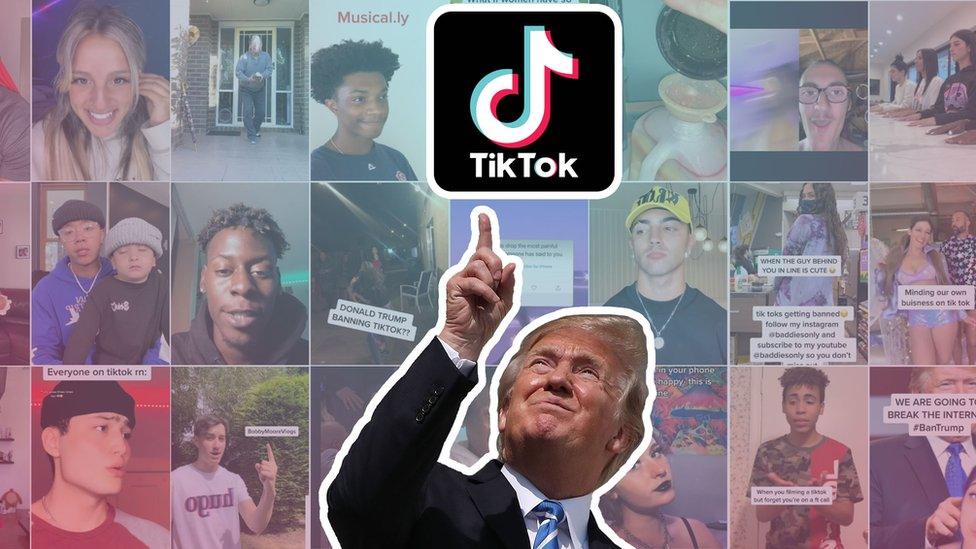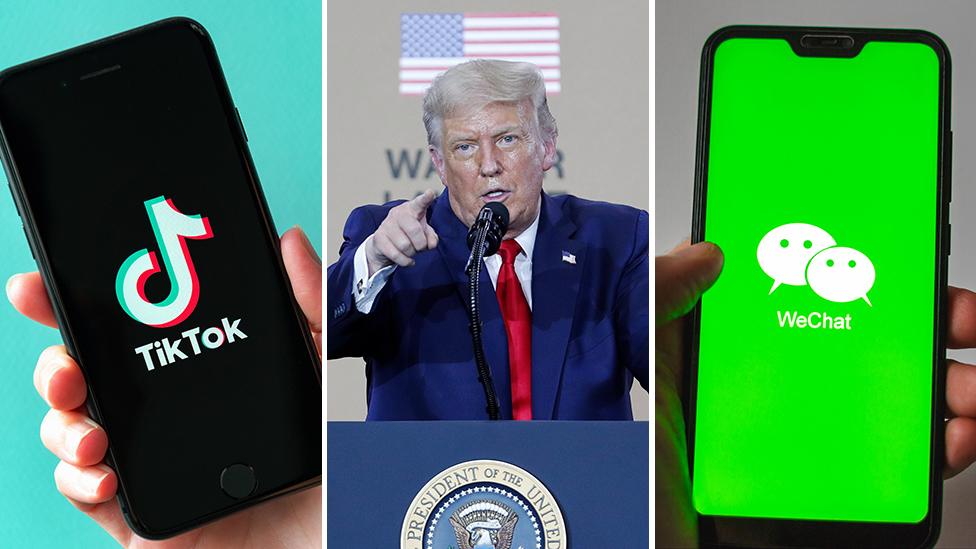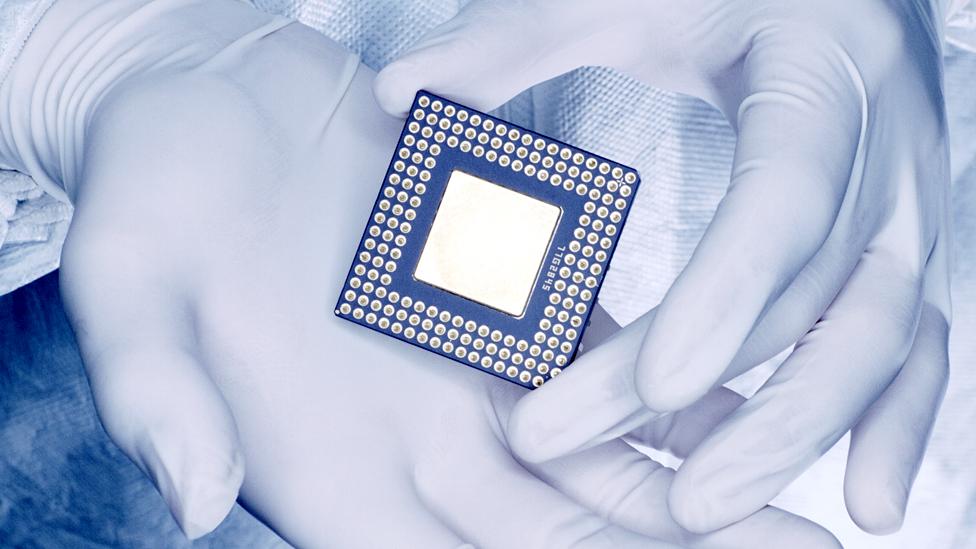Tech Tent: ARM, TikTok and the battle for tech supremacy
- Published

One has been described as the Switzerland of the chip industry, the other is the hottest new social media phenomenon of recent years.
But both ARM and TikTok are finding themselves buffeted by the crosswinds of the trade war between the United States and China, and this week's Tech Tent looks at what that might mean for both companies.


When America's Nvidia and Japan's Softbank revealed they had brokered a $40bn (£31bn) deal to see the chip giant acquire ARM, there was consternation in the UK tech industry.
Cambridge-based ARM designs chips for most of the world's mobile phones and many other devices, and is probably the most impressive tech business that Britain has produced in the last 30 years.
Even though it was sold to Softbank in 2016, the Japanese firm kept its promise to retain its Cambridge headquarters and boost jobs and investment in the UK. But ARM co-founder Hermann Hauser says a sale to Nvidia will be a disaster - he believes it is inevitable the new owner will want to run the business from the United States, with dire consequences for employment in places like Cambridge.
Whatever the concerns in the UK, this deal has raised questions around the world about what it will do to the balance of power in the chip industry which is at the centre of our technology future.
WATCH: Nvidia chief explains why he wants to buy ARM
ARM's business model depends on the trust of more than 500 customers who license its chip technology in the belief they will each get equal access to innovations. That's why Hermann Hauser calls it the Switzerland of the chip world and why he fears the company will lose that trust once it is in the hands of Nvidia, which has overtaken Intel to become the biggest cheese in the industry.
Analyst Geoff Blaber, of CCS Insight, tells Tech Tent he agrees with that diagnosis.
"The fact that ARM has been independent has meant that a whole swathe of licensees has been comfortable using its technology," he says.
"The moment that goes to a competitor, that does risk being compromised."
Nvidia chief executive Jensen Huang told us he loved ARM's business model and expects to offer more of his company's innovations to its customers.
"The business we bought is a combination of the people, the incredible architecture and the business model that led to this rich ecosystem that ARM represents today," he said.
He insists most of ARM's customers are not direct competitors of Nvidia so should not be worried.
But Geoff Blaber is not convinced - he says history shows that a licensing business that has two competing interests, serving its licensees while also pushing its own products, rarely works.
"The moment those licensees start to see a long-term threat or opposition against their core business, they're going to start looking at alternatives."
This deal also faces some major regulatory hurdles - even Jensen Huang concedes it will take more than a year to tie things up.
'Status quo'
But the big question is about approval from China, a major customer of ARM. At a time when the United States has moved to shut off Huawei's access to any Western chip technology, the Chinese government will not be happy to see a vital part of the semiconductor ecosystem come under the control of an American company which may have to obey diktats from Washington.
"They have a vested interest in keeping the status quo," says Geoff Blaber.
"I'd be very surprised if the deal, as it's been proposed, would get through scrutiny from China and the regulator there."
Meanwhile the Trump administration has been determined to ensure the United States has a measure of control over TikTok, a less vital part of the tech ecosystem, though don't say that to the hundreds of millions of teenagers who love it.
At the time of writing, it still is not clear whether the US or China will be satisfied with a deal which would see the enterprise software managing the data from the video platform while not entirely shutting the Chinese owners out.
But in this contest between the two tech superpowers, TikTok is just the appetiser. The future of ARM, the platform on which much of the future of computing is being built, is the main course.
- Published18 September 2020

- Published14 September 2020
